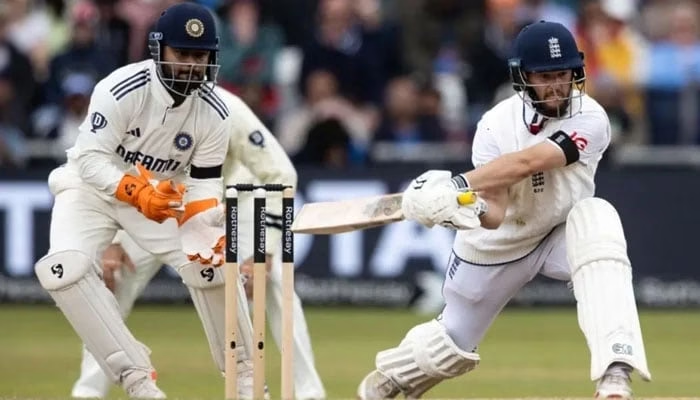In a stunning display of resilience and aggressive batting, England triumphed over India by five wickets in the first Test match, rewriting history and shattering Indian hopes in the process. Despite being armed with five individual centuries across their innings — a feat no team had previously lost a match after achieving — India succumbed to England’s relentless pursuit of victory. With this defeat, India became the first team in Test cricket history to lose a match after scoring five centuries, surpassing the previous record set by Australia in 1929, who lost a Test despite scoring four centuries.
A Record-Breaking Collapse
India entered the final day with hopes of leveraging their batting dominance and favorable moments during the match. However, England’s aggressive and calculated chase not only overpowered India’s bowling unit but also exposed vulnerabilities in their strategy. The game was interrupted briefly by rain, but even the weather couldn’t delay the inevitable.
England’s batting heroes were led by Joe Root and Jamie Smith, whose unbeaten partnership of 71 runs sealed the dramatic win. Root played the anchor role to perfection, finishing 53 not out, while Jamie Smith’s quick-fire 44 runs ensured momentum never dipped. Their partnership stood tall under pressure and guided England to one of their most memorable chases against India.
Duckett’s Masterclass and Early Momentum
Much of England’s charge was shaped by the sublime form of Ben Duckett, who cracked his sixth Test century, a fluent 149 off 121 balls, laced with 14 boundaries. Duckett set the tone early and dismantled the Indian bowling attack with precision and patience. After he reached his century, a brief rain delay paused proceedings, but not the intent.
Zac Crawley also played a solid supporting role with his 65 off 127 balls, and the duo gave England a dream start with an opening stand of 188 runs. This foundation proved to be a massive psychological edge over the Indian camp.
India’s Bowling Blunders
India’s bowling attack, considered potent and experienced, appeared toothless on the day. Jasprit Bumrah, India’s spearhead, went wicketless, which was a rare sight in a crucial chase. Though Shardul Thakur tried to revive hope by dismissing Duckett for 149, the remaining bowlers failed to build pressure or make breakthroughs when it mattered the most.
India’s field placements and defensive approach in the final session allowed England to rotate strike freely and chase the target with minimum risk. The bowling lacked variation, and the fielding couldn’t capitalize on half-chances — something that will haunt the team for the rest of the series.
Middle-Order Jitters but Calm Finish
England did face a hiccup in the middle order. After Duckett’s departure, Ollie Pope and Harry Brook were both dismissed cheaply for 8 and 0, respectively. However, the quick dismissals didn’t rattle England’s chase as Root and Smith counter-attacked and rebuilt with confidence.
By tea time, England stood at 269 for four, requiring just a little push to wrap up the chase. That push came with composure and clinical execution post-tea, as India failed to create any meaningful pressure.
Historic Win, Bitter Record
With this win, England also registered their second-highest successful run chase against India, showcasing the depth and grit of their current Test squad. On the other hand, India not only lost a golden opportunity but also etched an unwanted record in cricket history — being the only side to lose a match after five of its players notched up centuries.
This defeat will prompt serious introspection within the Indian camp, as batting milestones meant little without a matching bowling performance to close the deal. The team will also have to revisit its strategies around bowling rotations, field settings, and overall mindset in high-pressure run defenses.
As both sides gear up for the second Test, India will need to regroup, recalibrate, and reignite their bowling attack, especially if they want to prevent England from gaining an unassailable lead in the series. Meanwhile, England walks away not just with a win but with history in their hands — a statement victory powered by bold batting, tactical brilliance, and unshakable confidence.



